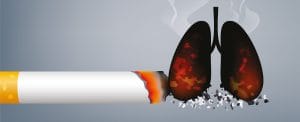Costanza Nicolosi, international regulatory expert for both LIAF and CoEHAR has participated in a press conference promoted by the Vaping Association Polska (VAP) on February 26th, held at the Centrum PAP in Warsaw, Poland to talk about the exponential increase in taxes on e-cigarette liquids that the Polish government wants to impose on producers.
To explain what is happening and to understand the extent of the Polish phenomenon, it suffices to walk through the streets of the Old Town in Warsaw, from the Palace of Culture to the Royal Route. The number of vapers in this small but significant corner of Poland is incredible. From the way they use the tool, be it an electronic cigarette or a heat no burn, one can see many Polish vapers, and immediately understands that this is not a passing phenomenon, but rather a real historical change.
In Poland it is not allowed to vape or smoke in bars and restaurants. Smoking areas are available for smoking and vaping, but in Poland we observe something strange: smokers have almost disappeared. More than 60% of young people or adults who use these areas are vapers. At least that’s what we notice at first glance.
As Piotr Zieliński, president of VAP well explained: “In Poland about 1 million liters of liquids for electronic cigarettes are sold every year”. An incredible spread that requires the Polish government’s – as the president explains: “Fairer behavior”. The increase in excise duties on vaping products, expected to enter into force already in July, with an excise duty of 55 g / ml of liquid: “not only would spoil the fate of the market but would lead to a worrying increase in the black market”.
Currently, in fact, these products are not subject to tax and, according to the representatives of VAP, a sharp increase in excise duties would increase – even double – the prices.
“The increase in the cost of conventional cigarettes – recalls Zieliński himself – was a process that lasted 20 years. It is incredible that the one for ecig instead must be so drastically premature. We ask that there be at least the time necessary to not destroy the sector”.
Hypothesis also confirmed by Costanza Nicolosi: “In Italy – she recalled – the introduction of high excise duties has caused the failure of over 70% of companies operating in the sector and has resulted in the consequent loss of over 2000 jobs. The real risk – as often argues also Prof. Riccardo Polosa who has conducted tons of research in this field – is that smokers, discouraged by the high prices of ecig, would divert from the healthier (i.e., the e-cig) or even return to smoking traditional cigarettes. And we know that electronic cigarettes are 95% less harmful than conventional cigarettes”.
What made the Polish situation even more complex was the international repercussion of the EVALI affair originated in America; as Zieliński points out: “What we propose as companies is the introduction of an ethical code that imposes on retailers a certification valid for sale and close to minors the possibility of accessing the ecig market”.
Numerous questions from the twenty journalists present at the conference were also addressed to Professor Abdrzej Sobczak from Silesian Medical University: “International news has now abundantly clarified what really happened in America. What we certainly know about electronic cigarettes is that they represent a much less harmful tool than conventional cigarettes. The explanation is very simple – added the Polish expert – it is not the device that must be blamed but the way users have used it”.




